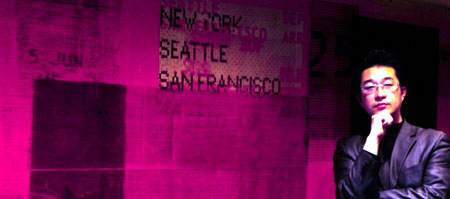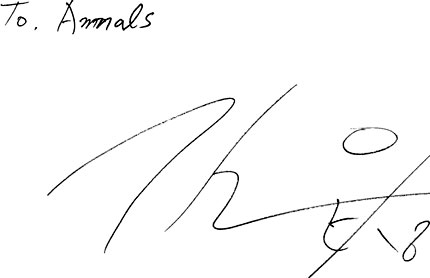Kim Woo-jung ('93, Dept. of Biomedical Laboratory Science, Wonju Campus)
 | ||
| ▲ Photographed by Kim Young-sung | ||
Annals: Your job, culture marketer, is unfamiliar to us. Could you explain it?
Kim: It is a new and unfamiliar concept to Koreans. I think culture marketer is one who makes profits using culture. For instance, cultural programs like dance education for a company's staff can cultivate their creativity and teamwork. Besides, consulting a company's marketing from cultural view is another role. Many firms didn't realize the importance of cultural marketing in past years. But now, famous companies like Hyundai or Daewoo ask for in advance.
Your major doesn't seem to have much connection with your work. What made you go into this field?
When I was a student, I participated to plan a festival. That made me get interested deeply in culture. And I seriously sought how to converge culture and business administration, my second major. Then I happened to hear of culture marketing and my instincts told me this is surely my way. I was lucky: I found what I loved to do when young and moreover, my area of interest was, so-called, blue ocean.
What difficulties have you had and how did you overcome them?
From the beginning, it was a web of hardships. When I took interest in cultural marketing, there were no theories, no case studies, and of course, no books. It was literally barren. So I had to seek out everything one by one.
Moreover, I was misunderstood at first since people didn't have any idea about cultural marketing. They treated me as an art broker who was struggling to get company's support or even a salesperson only interested in selling tickets.
I was also afflicted by financial hardship. At one point I went seriously bankrupt. Because of this I had to eke out with only 3000 won per day for six months.
But even while I was trapped in dire straits, I wouldn't abandon my vision. Whenever I wanted to give up, I repeated Kim Koo's famous saying: "The only thing that I desire in infinite quantity is the power of a highly developed culture."
What are your future plans and goals?
What I want is a company that makes a deep impression on their customers. How to make one? The key is changing companies' culture. And, in the long run, improving the nation's cultural attraction. I want to be able to give people all over the world a strong emotion of culture - that is my ultimate goal.
Any last words for Yonseians based on your experience?
These days' students only pursue stability. They study hard to earn a good GPA to get a stable job, one that may not be what they really want, and yet they think that they are living passionately. Where is their vigorous fighting spirit?
I want to sincerely recommend that you find what you love to do and devote yourself to it energetically. Do not be afraid of hard works thrown in your path. When deeply versed in the field, even though young, you are at the closest ground to success.
"Oh, I'm not that famous at all," he said bashfully when asked for his autograph. Yet a certain feeling came that this autograph, from a man who tries ceaselessly for what he wants to achieve and pursue, would be of much value in the future.
 | ||

